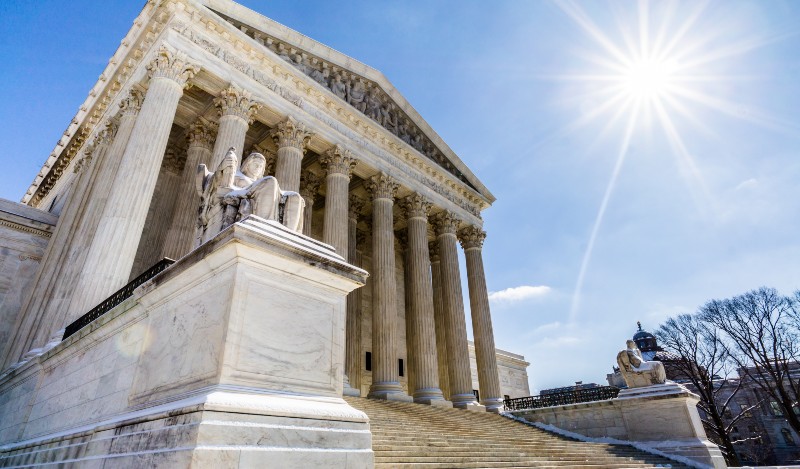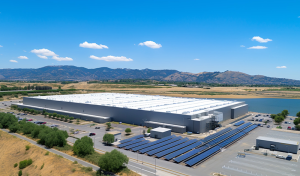
December 5, 2025
Supreme Court Questions Broadband Provider Liability for User Misconduct
Intermediary liability—when a company should be liable for users’ misuse of its product by users—has been a long-standing issue in tech policy. Two years ago, the Supreme Court dismissed a case alleging Twitter aided and abetted terrorism by allowing ISIS to recruit on its platform. This week, the Court weighed in again, hearing argument in…
December 4, 2025
A Huge Retraction, the Usual Playbook, and Reason for Optimism
Some huge news dropped today that will reverberate through climate science and policy. Nature has finally retracted “The Economic Commitment of Climate Change,” by Kotz et al. (KLW24), more than 18 months after first learning that the paper was fatally flawed, with the authors acknowledging that its errors are “too substantial” for a correction. It is not just the retraction…

December 4, 2025
Wrestling with Hulk Hogan’s Litigation Legacy for Online Journalism
It’s the season when celebrities-who-died-this-year lists proliferate. Terry Gene Bollea—the wrestler Hulk Hogan—will make most 2025 rolls, but his legacy may be his influence over online journalism. Bollea, who died in July, scored a 2016 courtroom triumph over Gawker Media, Nick Denton (Gawker’s founder and owner), and A.J. Daulerio (Gawker’s editor in chief). The invasion-of-privacy…

December 2, 2025
Tracing Engineered Biothreats with AI Forensics: Five Steps to Improve Attribution
The 2001 anthrax letter attacks in the United States, the 2007 United Kingdom foot-and-mouth outbreak, and the COVID-19 pandemic have something in common: Investigators have struggled to determine their origins despite extensive efforts. This highlights a critical gap in biosecurity capabilities—the limitations of modern forensics in reliably tracing biological threats back to their sources. When a novel pathogen emerges, investigators…

December 1, 2025
THB Insider #28 – Thanksgiving Reading
It is Thanksgiving Day here in the US — My favorite holiday. Chez les Pielke we are getting ready to put the turkey in as the sun rises. We will have a big table of family and are looking forward to a fun day with family, football, food, and joy! Last year, on this day…

December 1, 2025
US Hurricanes 2025 in Review
For the first time in a decade, the continental United States experienced no hurricane landfalls.1 Islands in the Caribbean saw multiple landfalls [1], notably Hurricane Melissa’s landfall as a Category 5 storm in western Jamaica, which resulted in more than 100 deaths in the region and about $10 billion in losses. The usual media script was played —…

November 25, 2025
What’s at Stake with the App Store Freedom Act
Americans benefit every day from the world’s most dynamic, secure, and innovative mobile platforms—Apple’s iOS and Google’s Android. These ecosystems launched mobile e-commerce and continue to fuel its unprecedented growth, empowering countless entrepreneurs and enabling powerful parental controls to protect children online. But some lawmakers now want to put others in charge—namely, Washington bureaucrats and…
November 24, 2025
The Battle for Climate Science and Policy Past—And Why It Matters
Last week in Belém, Brazil the 30th Conference of Parties to the U.N Framework Convention on Climate Change (UNFCCC) concluded with little accomplished, according to most observers. Perhaps the most significant accomplishment was formalizing a fully Orwellian characterization of the recent history of climate policy — See my post last week for why the UNFCCC characterization of moderating…

November 24, 2025
The Hidden Economy Behind Every Scam Email
Remember the last time you got a text that felt off? Maybe it claimed that your package was delayed or mentioned an unpaid toll, with a link to a website that looks seemingly legitimate. But what if that phishing attempt wasn’t the work of a lone scammer? Cybercrime today is a multitrillion-dollar global industry with…

November 21, 2025
Mobilizing Data for the Military and Beyond
Last week, I commented on the infeasibility of establishing a state-of-the-art data center on Australia’s Indian Ocean outpost Christmas Island. While the island is strategically well situated to monitor military movements in the Sunda Strait, Lombok Strait, and Malacca Strait, its distance from land—350 kilometers from Java and 1,500 kilometers from Australia—and the lack of…